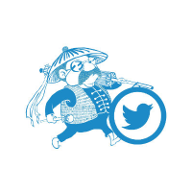









21 September 2018 by Roy Preece

Photo by Sean Kong on Unsplash
It was the best job I ever had. Twenty years ago when I retired as a tutor in the Faculty of the Built Environment I was asked if I would spend an afternoon each week helping graduate students from overseas with their English. Tutoring on a one to one basis with intelligent motivated students suited me very well. I think it suited them too.
As higher education supposedly becomes more ‘efficient’ with larger teaching groups it can become rather impersonal. On reading the ‘Thinking culturally: What’s in a name?’ blog by Lorna I was reminded of my own curiosity about why some of my international students used English names.
In my experience, it was mostly Chinese and Korean students who chose to use English names. At first, I thought these English names were the students’ proper names (after all English parents sometimes give a child a foreign name) but then I discovered they were the students’ own choices.
I think the habit of choosing English names seems less common than it was twenty years ago. It would be fascinating to know the various reasons why students sometimes choose to change their names and I would be very interested to hear from anyone about it.
I always imagined Chinese students chose these names because they liked them (I still think so) but after reading Lorna’s article I suppose they may have been given them at some language school. They certainly were not frivolous or demeaning names though.
In one way it’s quite nice to be able to choose your own name to suit your own image of yourself rather than the one your parents chose for you; English people sometimes do this.
If I’m allowed to make a sexist point, I think it is mostly girls who like to change their names, in the same way, I suppose as they like trying different clothes and hairstyles; and it was mostly Chinese girls, too, who had chosen English names.
So, the names were freely chosen and, as with Catherine, they appealed to their owners, and were normal English names like Polly, Fion (Fiona), Connie and so on. Sometimes they made up names; one girl combined Flora with Lorna and called herself Florna and seemed very proud of it.
Adopting a new name can be a group bonding thing. I’m sad to say that English students were not on the whole sympathetic to students from overseas and made little allowance for their difficulties at fitting in; it sometimes seemed rather to exclude them. Maybe having an English name helped a little with bonding. Certainly, an un-pronounceable name would not help.
Staff, too, rarely took trouble to find out the correct pronunciation of foreign names. You may say this is a small matter. Most students tolerated it; what else could they do? If, as an English person, your name was Wendy and everyone in China called you Wendy or Brian and everyone called you Brain, might you not say ‘Oh just call me Yi Chun or HungTa.’
There was a well-known TV comedy set in France which featured a policeman who spoke mangled English and frequently got his vowels mixed up, which sometimes turned normal words into rude ones; I suddenly realised, gosh! Does my French sound like that? A simple voice inflexion or ‘tone’ in Chinese turns mother (ma) into horse! It took a long time for me to discover that Yi was pronounced Eee; and I never did get Chun right. Hung Ta was happy to be called Honda by everyone; I think he liked it as a nickname.
Our director’s name Su Yen seems easy to say (I think) but she may be annoyed if people shorten that to English Sue. Lihui also seems fairly straightforward, but one educated lady would say Lee Wee, based I suppose on French ‘huit’ pronounced weet. I have learned I should really say Lee h’way (note the ‘h’) but I confess I don’t. Some Chinese names though are almost impossible for an English person to pronounce correctly.
Where is the harm if the names are normal English names and are freely chosen? Well. I suppose it depends on why they are chosen. If it’s just a bit of fun, like changing your hairstyle, or sampling English food when living in England; or if the name is genuinely preferred because of its sound; or it’s young people rebelling and aping western cultures like western clothes and jazz, then maybe there is no harm.
Some students even got tired of their chosen English name and adopted a new one just for a change. But I often suspected, as Lorna does, that it was a sort of subservience to western culture, whether imposed directly or by a feeling of inferiority about one’s own culture. I was always pleased when a student used their own Chinese name.
I‘ve always believed that anyone should be called what they want to be called. I always asked my students what their Chinese name was and what it meant, and especially what they would really like to be called. One of the most important roles of a teacher is to encourage self-respect and confidence in a student. Maybe that starts with a name.